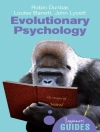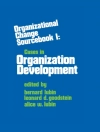Engaging and authoritative, this unique workbook enables therapists and students to build technical savvy in contemporary CBT interventions while deepening their self-awareness and therapeutic relationship skills. Self-practice/self-reflection (SP/SR), an evidence-based training strategy, is presented in 12 carefully sequenced modules. Therapists are guided to enhance their skills by identifying, formulating, and addressing a professional or personal problem using CBT, and reflecting on the experience. The book’s large-size format makes it easy to use the 34 reproducible worksheets and forms. Purchasers also get access to a Web page where they can download and print the reproducible materials.
Table of Content
Foreword, Christine A. Padesky 1. Introducing Experiencing CBT from the Inside Out 2. Experiencing CBT from the Inside Out: The Conceptual Framework 3. Guidance for SP/SR Participants 4. Guidance for SP/SR Facilitators I. Identifying and Understanding Unhelpful (Old) Ways of Being Module 1. Identifying a Challenging Problem Module 2. Formulating the Problem and Preparing for Change Module 3. Using Behavioral Activation to Change Patterns of Behavior Module 4. Identifying Unhelpful Thinking and Behavior Module 5. Using Cognitive Techniques to Modify Unhelpful Thinking and Behavior Module 6. Reviewing Progress II. Creating and Strengthening New Ways of Being Module 7. Identifying Unhelpful Assumptions and Constructing New Alternatives Module 8. Using Behavioral Experiments to Test Unhelpful Assumptions against New Alternatives Module 9. Constructing New Ways of Being Module 10. Embodying New Ways of Being Module 11.Using Behavioral Experiments to Test and Strengthen New Ways of Being Module 12. Maintaining and Enhancing New Ways of Being Module Notes References Index
About the author
James Bennett-Levy, Ph D, is Associate Professor in Mental Health at the University Center for Rural Health, University of Sydney, Australia. He has pioneered self-experiential CBT training since his first self-practice/self-reflection (SP/SR) paper in 2001, and has made a significant contribution to the therapist training literature with over 25 CBT training publications. In particular, his 2006 Declarative-Procedural-Reflective model of therapist skill development is widely used and cited. Dr. Bennett-Levy is coauthor or coeditor of several books on CBT practice, including, most recently, the Oxford Guide to Imagery in Cognitive Therapy. Richard Thwaites, DClin Psy, is a consultant clinical psychologist and CBT therapist who serves as Clinical Director for a large National Health Service psychological therapies service in the United Kingdom. In addition to delivering therapy, he provides clinical leadership, supervision, training, and consultancy in CBT, including the implementation of SP/SR programs. His research interests include the role of the therapeutic relationship in CBT and the use of reflective practice in the process of skill development. Beverly Haarhoff, Ph D, is a clinical psychologist and Senior Lecturer in the School of Psychology at Massey University, Auckland, New Zealand, where she was instrumental in setting up the first Postgraduate Diploma in CBT in the southern hemisphere. For the past 14 years she has trained and supervised both CBT and clinical psychology trainees. Her research has focused primarily on SP/SR as mechanisms to support and improve therapist skill acquisition in CBT therapists at all levels of development. Dr. Haarhoff has a private clinical practice and regularly presents CBT training workshops. Helen Perry, MA, is Adjunct Senior Lecturer at the University of Sydney and a clinical psychologist in private practice. She played a key role in creating the CBT Diploma Program at Massey University and is an active CBT trainer and supervisor. She served as Project Manager for a research study focusing on online CBT training and coauthored two papers in this area. Ms. Perry has worked across the lifespan in a wide range of clinical settings. Her special interests are in complex/comorbid depression and anxiety, and trauma- and stress-related disorders.












